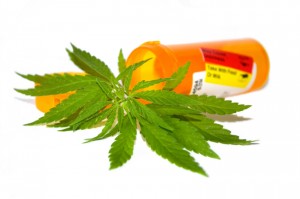 I like Richard Friedman’s columns in The New York Times for his well-reasoned opinions and for his ability to express them in ordinary English (a talent many great scientists have not shared.) This recent piece addresses the popularity of CBD, or cannabidiol, the non-psychoactive component responsible for most or all of the plant’s value in healing. By the way, he wonders whether CBD is truly without psychoactive effects, or if we’re just minimizing them in comparison to THC. You can decide for yourself. I can use the article as a jumping-off point for a few comments on the state of scientific knowledge about cannabis.
I like Richard Friedman’s columns in The New York Times for his well-reasoned opinions and for his ability to express them in ordinary English (a talent many great scientists have not shared.) This recent piece addresses the popularity of CBD, or cannabidiol, the non-psychoactive component responsible for most or all of the plant’s value in healing. By the way, he wonders whether CBD is truly without psychoactive effects, or if we’re just minimizing them in comparison to THC. You can decide for yourself. I can use the article as a jumping-off point for a few comments on the state of scientific knowledge about cannabis.
A common criticism from the scientific community: Research is far from complete. There are some conditions that most scientists would agree can benefit from treatment with CBD, such as painful muscle spasms related to multiple sclerosis, and nausea and vomiting after chemotherapy, and a form of childhood epilepsy. Chronic pain is likely the most common usage. Those four alone should be enough to include an enormous number of Americans, but governments have gone way beyond that, such as PTSD and opioid disorders, where research is thin on the ground.
Advocates for medical cannabis counter, reasonably enough, that the government’s overly restrictive approach has made it difficult or impossible for researchers to explore health benefits. No argument there. Perhaps when allowed, scientists will discover a whole host of new uses for cannabis in healthcare. I hope they do, because frankly, we could use them.
Still, regardless of reason, the verdict is not yet in. Current research isn’t enough to justify some of the extraordinary claims made for the healing powers of cannabis. We can’t be confident that perceived benefits from patient reports or early experiments will hold up in practice. Or that there aren’t some downsides we simply haven’t discovered. These are questions that come up for every drug, not just cannabis, and it takes time to answer them. Unanswered, they can lead to problems down the road.
As happened with synthetic opioids. Much of the research cited in the push to expand medical opioid use turned out to be seriously flawed — sometimes nonexistent. As one doc remarked, a classic case of putting the cart (use in practice) before the horse (good research into safety and effectiveness). We saw something similar during the AIDS crisis. It seemed as if the public was confronted with a new “miracle” cure every week or two, usually touted as “natural”, whatever that means. Of course most of those didn’t work as advertised. But in the absence of good science, people were willing to risk it.
Some experts have suggested that the problem of medical legitimacy would go away if and when all uses of cannabis are legalized. That certainly seems to be what’s occurred in Colorado. People who want to use cannabis products for pain just purchase them at the same stores that recreational users patronize. Who knows? At some point, it’s possible the medical cannabis programs will fade entirely.
Is that progress? You tell me.










